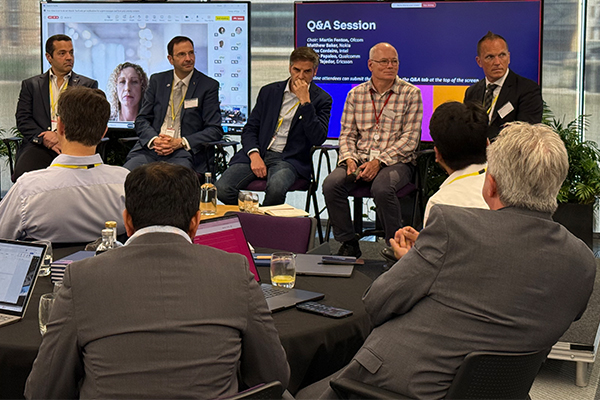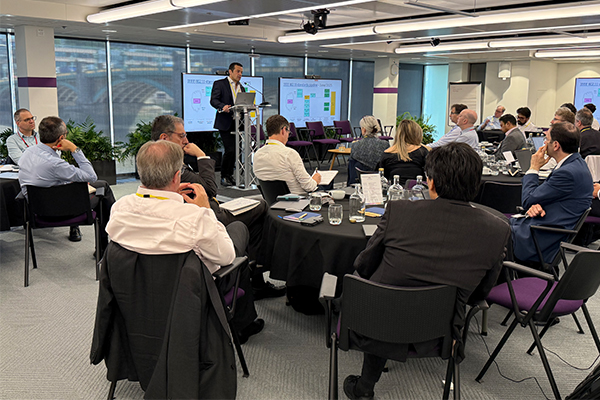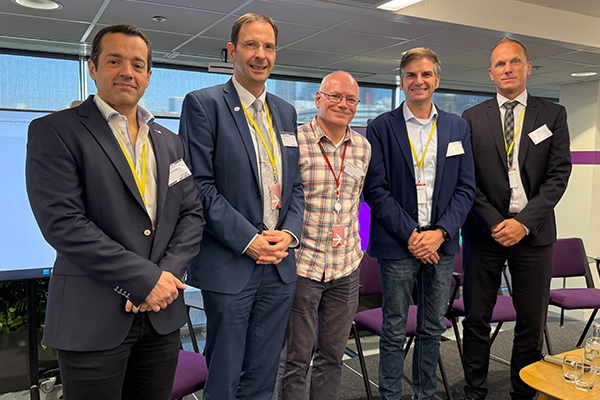
Ofcom welcomed representatives of the mobile and Wi-Fi industries, consultants, academics and international regulators to a workshop earlier this summer to discuss how to enable sharing between different technologies in the Upper 6 GHz spectrum band.
 The Upper 6 GHz band has been a topic of discussion across the mobile and Wi-Fi sectors in recent years. Following the 2023 World Radiocommunications Conference recognition of the use of the band for both mobile and Wi-Fi, more countries around the world are progressing authorisation for one technology or the other, or in the case of Europe, for both on a shared basis
The Upper 6 GHz band has been a topic of discussion across the mobile and Wi-Fi sectors in recent years. Following the 2023 World Radiocommunications Conference recognition of the use of the band for both mobile and Wi-Fi, more countries around the world are progressing authorisation for one technology or the other, or in the case of Europe, for both on a shared basis
In Europe, Ofcom has been instrumental in examining what exactly shared use of the band between Wi-Fi and mobile could look like. While mobile and Wi-Fi are both big users of radio frequencies, the two technologies don’t easily share the same spectrum. Finding a way to make sharing work harmoniously between the two could unlock big benefits for wireless devices in the future, and the Upper 6 GHz band in particular is of interest to both technologies. This could mean faster, more reliable connections for UK consumers over both Wi-Fi and mobile data in busy locations like train stations, sports stadia, shopping centres and more.
 Earlier this year, Ofcom consulted on a phased approach to authorising both mobile and Wi-Fi in the Upper 6 GHz band. Under our proposals, Wi-Fi would enter the band as soon as possible, as Wi-Fi equipment for other markets, such as the US, Canada and South Korea, is available right now. Mobile would be assured of access to the band in the future under a shared arrangement, at which point existing Wi-Fi might have to make allowances to make sure both services can coexist. Early Wi-Fi use of the band would mean people and businesses in the UK could start to benefit from better connectivity, especially in events venues, offices and enterprise settings where extra Wi-Fi capacity would be the most needed while work is ongoing across Europe to agree the overall approach to shared use.
Earlier this year, Ofcom consulted on a phased approach to authorising both mobile and Wi-Fi in the Upper 6 GHz band. Under our proposals, Wi-Fi would enter the band as soon as possible, as Wi-Fi equipment for other markets, such as the US, Canada and South Korea, is available right now. Mobile would be assured of access to the band in the future under a shared arrangement, at which point existing Wi-Fi might have to make allowances to make sure both services can coexist. Early Wi-Fi use of the band would mean people and businesses in the UK could start to benefit from better connectivity, especially in events venues, offices and enterprise settings where extra Wi-Fi capacity would be the most needed while work is ongoing across Europe to agree the overall approach to shared use.
 Our workshop discussion focused on some of the practicalities of how to make sharing a reality. During the morning session, Ofcom provided an update on the issues raised by respondents to our consultation and likely next steps in the process, with a speaker from the EU’s Radio Spectrum Policy Group (RSPG) explaining its position on the Upper 6 GHz band. Speakers from Nokia and Intel covered the process of standardisation of devices in two of the main standards bodies for wireless devices (3GPP and IEEE 802.11), and speakers from Qualcomm and Ericsson discussed the practical implications of different ways the two technologies can be aware of each other to share the spectrum efficiently.
Our workshop discussion focused on some of the practicalities of how to make sharing a reality. During the morning session, Ofcom provided an update on the issues raised by respondents to our consultation and likely next steps in the process, with a speaker from the EU’s Radio Spectrum Policy Group (RSPG) explaining its position on the Upper 6 GHz band. Speakers from Nokia and Intel covered the process of standardisation of devices in two of the main standards bodies for wireless devices (3GPP and IEEE 802.11), and speakers from Qualcomm and Ericsson discussed the practical implications of different ways the two technologies can be aware of each other to share the spectrum efficiently.
In the afternoon, attendees in person and online joined breakout groups to discuss the work needed to prepare for standardisation work to commence, and what cross-technology signalling and sensing methods would need to demonstrate before adoption.
Ofcom is now working through the feedback we received in responses to the 6 GHz consultation, and from the workshop. We’re grateful to all those who’ve provided input, and plan to provide an update on the future of the band by the end of the year.
